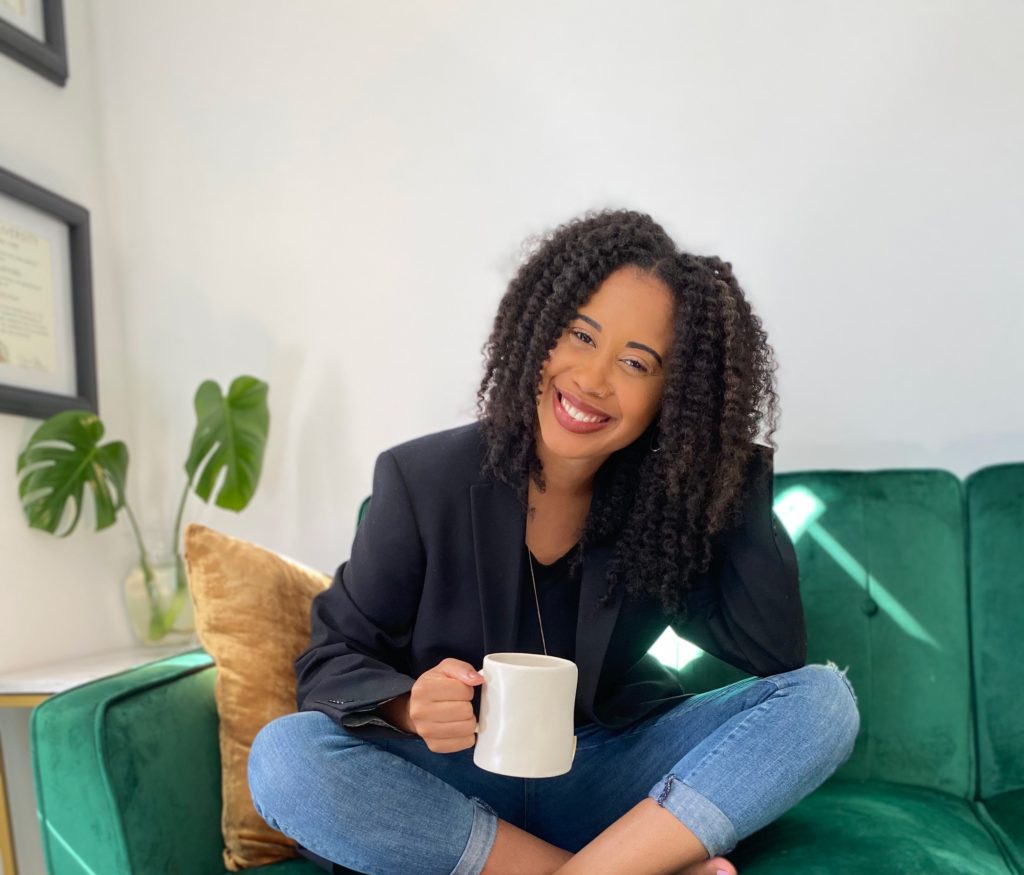We’d like to share a personal blog post by Open Path Psychotherapy Collective member therapist Kenya Crawford, LMHC (she/they). Kenya is a licensed psychotherapist and racial equity consultant that creates healing and liberating spaces to dismantle oppressive systems. Crawford writes about connecting to the Open Path mission, and why offering affordable healing is so important as a Black queer therapist. Thank you so much, Kenya for allowing us to share your thoughts.
—
Between systemic oppression, anti-black racism, and a pandemic, the need for therapy is endless. Yet with that irrevocable truth, millions of people struggle to find accessible healing. Between capitalism, struggles to find BIPOC therapists, or even a therapist with shared values, the journey towards finding a therapist can be treacherous.
As a Black queer therapist, creating accessible and liberating healing spaces is my passion. I became a therapist to be the therapist I wish I had growing up. As a young Black girl seeking therapy, I struggled to find a therapist who looked like me or could marginally understand my life. As I have navigated mental health spaces I have witnessed firsthand the numerous barriers to accessible healing.
First and foremost is finances! Attempting to find a therapist that accepts your insurance or doesn’t break the bank can seem impossible. Unfortunately, this isn’t the only barrier to finding accessible healing. Even with financial privilege, many people still struggle to find a therapist. For many clients, there is a desire to find a therapist who shares most of their social identities, including race, gender, sexual orientation, etc.
On top of the barriers of money and shared identities, the idea of finding a therapist with similar values – whether it be anti-racism, abolition, or even spirituality – can start to feel overwhelming and impossible. Lastly, given the demand for mental health support, many therapists – especially BIPOC therapists – have a lengthy waitlist that may only open a few times a year.
At various points in my life, I’ve benefited from therapists offering a sliding scale. Sliding scales offered me the opportunity to heal while training to be a healer. As a therapist, I have always kept 3-5 clients on a sliding scale to ensure that the healing I provide can be accessible to all regardless of financial status.
As a therapist, I get it – we have bills too. Many BIPOC therapists aren’t coming into this field with generational wealth affording us the opportunity to offer an abundance of sliding scale spots. In no way am I suggesting that sliding scale clients should be the bulk of your caseload. I am challenging you to think critically about your relationship with wealth. What narratives are you holding around wealth that are impacting your abilities to diversify your rates?
Now I want to be clear. If adding an additional sliding scale client to your caseload would disrupt you from maintaining your needs, by no means should you do so. I wholeheartedly believe that all clinicians should be compensated a liveable wage – and I don’t mean living paycheck to paycheck! And also, I love a “both-and” mindset. Diversifying my fee structure allows for my clients with substantial wealth to pay a larger fee, giving space for my sliding scale clients to access therapy.
Determining which client qualifies for a sliding scale can be a rather invasive process. While being a therapist frequently entails us having intimate information about some of our clients, receiving all of their financial information prior to even working with them can feel rather uncomfortable. Open Path eliminates all of the additional labor to ensure that the clients on a sliding scale are in need of affordable therapy.
I am grateful to partner with Open Path to further my personal goals of making healing accessible. Open Path cuts out all of the ambiguity and uncertainty around which clients should be sliding scale. With each client you accept from Open Path, you know that they truly need a sliding scale!

